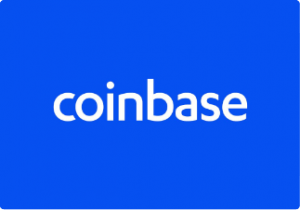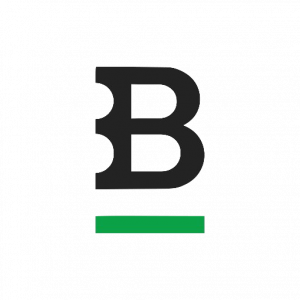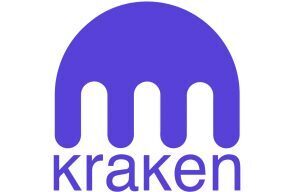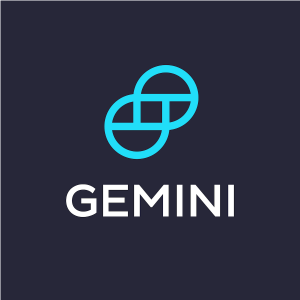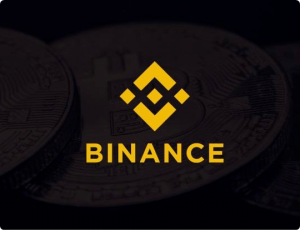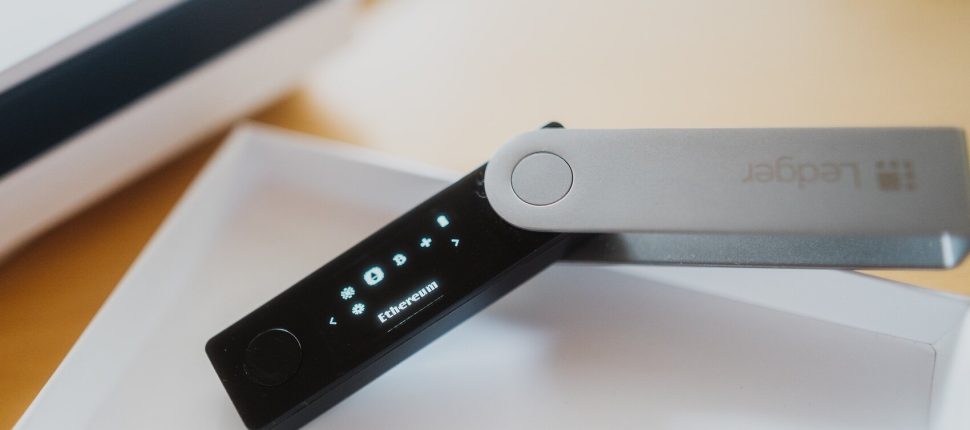- >Best Crypto Exchanges
- >Best Safest Crypto Exchanges
Top 5 Secure Cryptocurrency Exchanges of 2026
We’ve thoroughly reviewed the well-known platforms to give you our thoughts on the safest crypto exchange options you can trade on. We considered important factors, like user-friendliness, and trading features, to establish our top five:
Safest Crypto Exchange
Best For
Key Security Features
Regulation & Compliance
Data protection
Cold storage, 2FA, SAFU Fund insurance, real-time monitoring
DASP, Swedish FSA, VASP
Where to Buy Digital Assets Safely in 2026: Our Top Picks
Choosing a safe exchange is like choosing the safest cryptocurrencies to trade with. The right choice comes down to the details. Our team looked at each exchange’s strengths, security protocols, and cold storage practices. We’ve also considered trading features, regulatory licensing and insurance coverage. Everything you’d need to consider when choosing a secure crypto exchange. Let’s have a look at what sets each platform apart.
Coinbase
Coinbase offers a variety of stringent security features. These include biometric logins and 2FA. As a publicly traded company, Coinbase is subject to SEC oversight. The platform also publishes regular financial disclosures. If you’re a trading novice, Coinbase is a fantastic option.
A regulated U.S. exchange tailored for simplicity, security, and fiat integration.
Bitstamp
Bitstamp has been in operation since 2011 and has a solid reputation for security. The platform holds an ISO/IEC 27001 certification, a globally recognized information security standard. It also stores the majority of your assets in cold wallets and it adheres to strict AML and KYC policies. The exchange also conducts regular audits and penetration tests. Bitstamp is a great choice if you value a solid, proven reputation.
One of the longest-running crypto exchanges with a strong focus on regulation and trust.
Kraken
This platform offers some tough security measures. Amongst them, you’ll find two-factor authentication, hardware security keys, and withdrawal whitelists. Kraken also stores 95% of user assets in geographically distributed cold wallets. The platform has a dedicated security team that runs regular penetration testing. The exchange is regulated in the US, UK, and Japan. Kraken is a great choice if you’re an experienced trader and prioritize security and transparency.
One of the world’s most trusted and secure crypto exchanges with low fees and advanced trading tools.
Gemini
Gemini doesn’t compromise on security, particularly at the institutional level. Gemini uses multisig wallets, cold storage, and tough internal controls. The exchange is regulated by the New York Department of Financial Services (NYDFS). You can also insure your assets via a third-party underwriter. Gemini is a top choice for institutions and high-net-worth individuals.
A regulated U.S. exchange emphasizing security and compliance.
Binance
Binance’s multi-layered protection systems has cemented its solid reputation. The majority of the exchange’s funds are kept securely in cold storage, and it maintains a Secure Asset Fund for Users to cover any unexpected losses that may occur. It holds various regulatory licenses across different jurisdictions, and is certainly a strong choice.
Other exchanges with strong security features
Still haven’t found what you’re looking for? Take a look at these great options instead:
- Crypto.com – A mobile-first platform with a big emphasis on security. The exchange uses hardware security modules (HSMs) and supports multi-factor authentication. It also offers up to $750 million in insurance coverage.
- eToro – Stores assets in cold wallets to help protect your assets should the platform be hacked. The exchange complies with U.K., E.U., and Australian regulations.
- Bitstamp – Holds an ISO/IEC 27001 certification, a globally recognized information security standard. BitStamp stores the majority of your assets in cold wallets. The platform adheres to strict AML and KYC policies and conducts regular audits and penetration tests.
- Bybit – Offers you cold wallet storage, and 2FA. Bybit also has a risk management system with real-time monitoring and withdrawal protection.
Secure Crypto Exchange 101: What Every Investor Should Know
So, you need a secure crypto exchange. Hacks, phishing attacks, and other forms of fraud are threats you can’t ignore. According to the data platform Chainalysis, over $2.2 billion in digital assets were stolen in 2024. That’s a 21% increase from 2023. The safest and most secure cryptocurrency exchanges use a range of security measures and follow industry best practices to prevent anything nefarious happening to your hard-earned assets.
The Research Behind Our Top Trust Ratings
When it comes to exchanges, safety is about more than just password protection. It also includes regulatory compliance, transparency, audit strength, infrastructure, and more.
The CryptoVantage Trust Score is a composite metric that aims to evaluate some of the most well-known exchanges in terms of:
- qualitative factors (like liquidity, market quality, reputation, regulatory standing, team visibility, proof of reserves, and more)
- and quantitative factors (like estimated trading volume, user base, scale of operations, and reach).
In the end, all of these factors were considered to develop a weighted trust score (out of a possible 100) that aims to provide a rounded view of these platforms’ reliability and prominence. Here’s how these top exchanges performed:
How to Find the Safest Place to Buy and Trade Crypto
Before you start setting up a crypto exchange account, take a moment to reflect on the security measures employed by your favorite platforms. Worry-free investing can be complicated. Here’s some guidance on what to look for in the safest crypto exchange, depending on your trading habits.
For Beginners – Cover Your Bases
- Regulatory oversight – A regulated exchange is held to high standards of compliance and enforce your right to consumer protection. Look for platforms that are licensed by regulatory bodies, such as the U.S. Securities and Exchange Commission (SEC), The Financial Conduct Authority (FCA), Monetary Authority of Singapore (MAS), and the Commission de Surveillance du Secteur Financier (CSSF).
- Anti-money laundering (AML) – AML protocols protect you from being implicated in illegal transactions. Platforms that follow AML protocols are considered to be more trustworthy and are required to monitor transactions for suspicious activity. Compliant exchanges also have to maintain records that can be audited by regulators.
- Know Your Customer (KYC) requirements – Financial institutions and exchanges use KYC to verify that users are who they claim to be. This helps prevent identity theft, fraud, and illegal activity. The process typically involves collecting personal information and government-issued identification. Some platforms may also require a selfie or video verification to confirm your identity.
- User authentication – User authentication protocols like Two-Factor Authentication (2FA) are essential. Some exchanges also offer biometric logins and hardware security key support.
For Expert Traders: Take Control of Asset Protection
- Advanced security controls – Some exchanges offer improved control over important security settings. Look out for things like withdrawal whitelists, session timeouts and IP tracking.
- Transparency – Top exchanges publish regular security audits. Also, look out for exchanges that offer proof-of-reserves reports and compliance certifications. Some platforms, like Bitstamp, also hold recognized industry security certifications. Listed exchanges like Coinbase release quarterly financial reports. This kind of transparency shows a commitment to keeping your assets safe.
- Reputation matters – It pays to research user reviews and expert opinions. Also, check an exchange’s security history before signing up. Has the exchange ever been hacked? How did it respond to the incident? You can tell a lot from how an exchange has responded to these kinds of incidents.
For High-Volume Traders: Look for Advanced Safeguards
- Cold storage – Cold wallets are inherently more secure. They’re offline storage solutions, making them almost immune to hacks. The safest cryptocurrency exchange should protect you by storing 90 – 95% of user funds in cold storage. That significantly decreases the likelihood of large-scale theft, even if the platform is breached.
- Insurance coverage – Top exchanges offer insurance policies that cover your assets in the event of a hack. It doesn’t mean that you’ll be reimbursed for every cent lost, but insurance is an important safety net.
- API and Security Protocols – Proper protection goes deeper than just surface level security measures. Things like secure API, proper rate limits, and DDoS mitigation tools all help to secure your data on a deeper level.
Top Tips for Securing Your Coins
Determining the safest crypto exchange for your coins is an excellent first step in setting up a well-guarded portfolio. However, the exchange’s fortification measures can only go so far. If you really want to bump up the protection of your digital assets, you will need to ensure that your entire process is as secure as possible. Some expert-backed tips that can improve the security of your transactions, include:
Use a Hardware Wallet – Use a high-quality, secure hardware wallet like the Ledger Nano X, or Trezor Model-T. Sticking to the safest crypto wallets on the market means that your private keys will be kept offline, making them a lot less likely to be hacked.
Diversify Across Exchanges – Don’t keep all your assets in one place. Reduce risk by spreading your crypto across multiple safe, reputable platforms.
Monitor Accounts Regularly – Set up alerts for logins and large transactions. It’s also a good idea to review your account activity frequently to help you catch any unauthorized access, early.
Keep Up to Date on Best Practices – Stay current on industry best practices. The threat landscape changes quickly. That said, the best crypto exchanges also move rapidly to neutralize any new threats. Staying informed is your best defense.
Avoid Public Wi-Fi – Avoid accessing your exchange account over an unsecured network. Public wi-fi connections are risky and should be avoided.
Use A VPN – The best crypto VPNs can protect your identity and browsing activity from would-be hackers and data thieves. Getting one is a smart move, whether you’re trading or not.
How to protect yourself beyond choosing a safe platform
Amongst all this talk about safety, security and protecting your assets, we would be remiss if we did not remind you crypto investments are never risk-free. Even the most reliable platforms cannot eliminate things like market volatility, human error, or smart contract vulnerability. That is why it is so important to never invest tokens that you are not willing to lose, and to do your research thoroughly before you invest any funds.
What Happens If an Exchange Gets Hacked?
As we have discussed on this page, the safest crypto exchanges have complex security systems with multiple layers of protection to ensure that these hacks don’t happen. In fact, none of the platforms that made our list have ever experienced a platform-wide breach.
Full breaches are exceedingly rare, but in the unlikely occasion that such a hack does occur – all hope is not lost. The prevailing myth is that any assets ceased during such a breach will be lost forever. However, in reality, exchanges use cold storage, withdrawal limits, and even insurance funds to safeguard against this happening. In some cases, the authorities will even get involved to chase down funds on the blockchain.
It is certainly always important to invest wisely and to be cognizant of various security threats, but sticking with the trusted, responsible exchanges is the best way to ensure that there is a safety net to protect your precious digital assets.
Closing Thoughts: Choose Smart, Trade Safe
Finding the safest crypto exchange goes one step beyond just worrying about fancy nice-to-haves or low fees. It means being on the lookout for solid security features like regulatory compliance, encryption, cold storage and 2FA. The platforms we’ve reviewed go the extra mile to protect your coins. Your crypto journey should feel empowering, not stressful. Choose a platform that offers you the highest level of security, and that’s aligned with your trading goals, because in crypto, confidence is the ultimate currency.
Frequently Asked Questions
Kraken and Gemini are broadly thought of as being the most secure options. Both of these offer platforms have cold storage for an added layer of protection. They’re also both regulated, meaning that they comply with stringent policies and transparency guidelines.
Coinbase is a great choice if you’re just starting out, thanks to its tough security. On top of that, the user interface is intuitive and easy to use. The platform also offers you educational tools to help you get trading quickly.
All the exchanges we’ve listed here can be considered safe. Your choice really comes down to your trading needs and goals. With that being said, it is important to remember that investment has risks and you should always trade responsibly with your tokens (even on the most secure exchanges).
Check the exchange’s website. Also, verify the information with the local financial authorities in your region.
It really depends on the platform. For the best approach, research their security practices before you sign up. Also, check regulatory statuses before you deposit any of your assets.
New exchanges often lack trustworthy customer reviews and have not yet had time to prove how their security measures stand up to various types of online threats. This is why we usually suggest sticking with the more established exchanges that have built up their reputations over the years with good service, and excellent security features.
We recommend centralized crypto exchanges over decentralized. Decentralized are unregulated and unlicensed, so it’s a bit of the Wild West. Centralized exchanges offer far greater safety and security.
